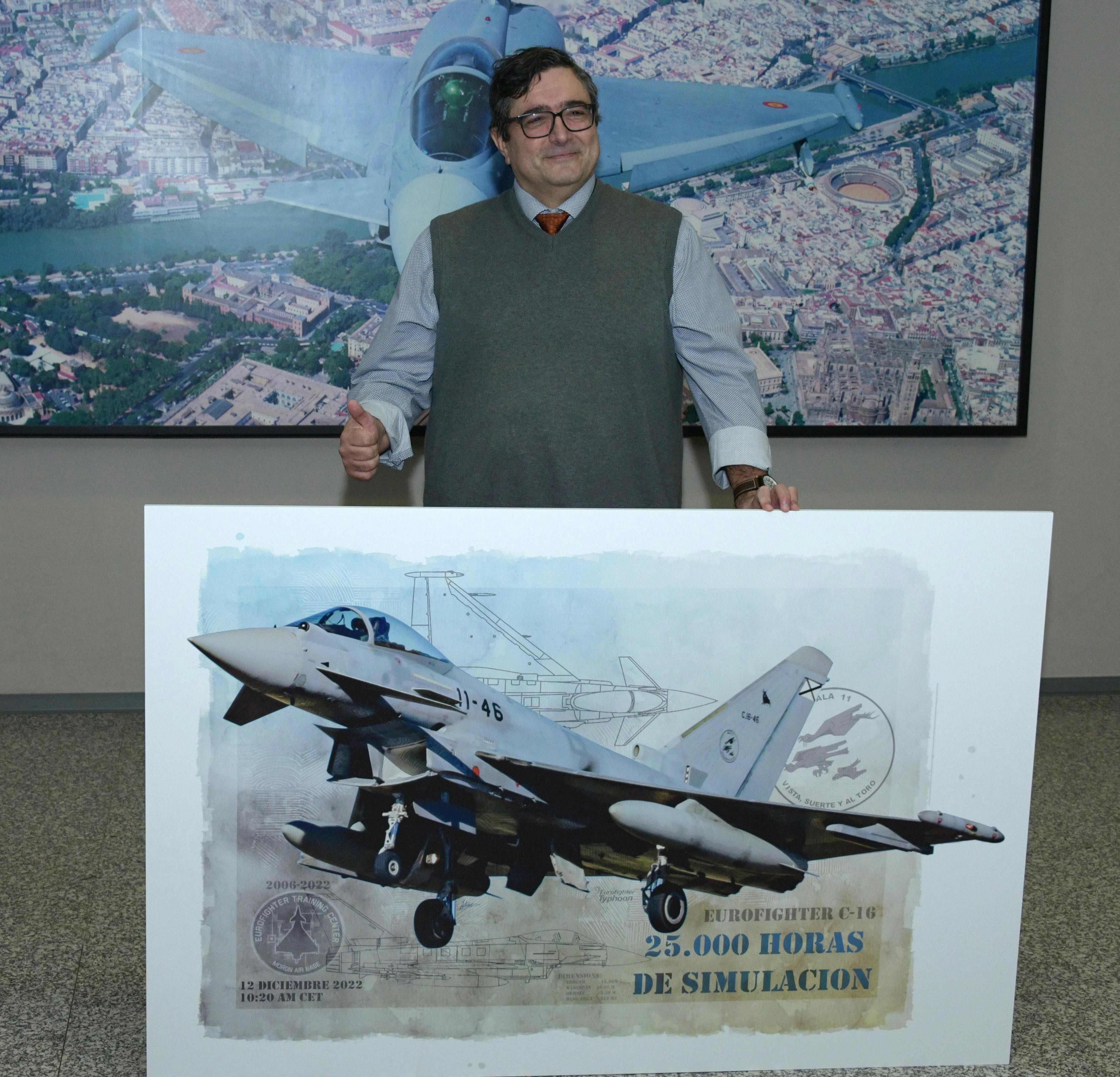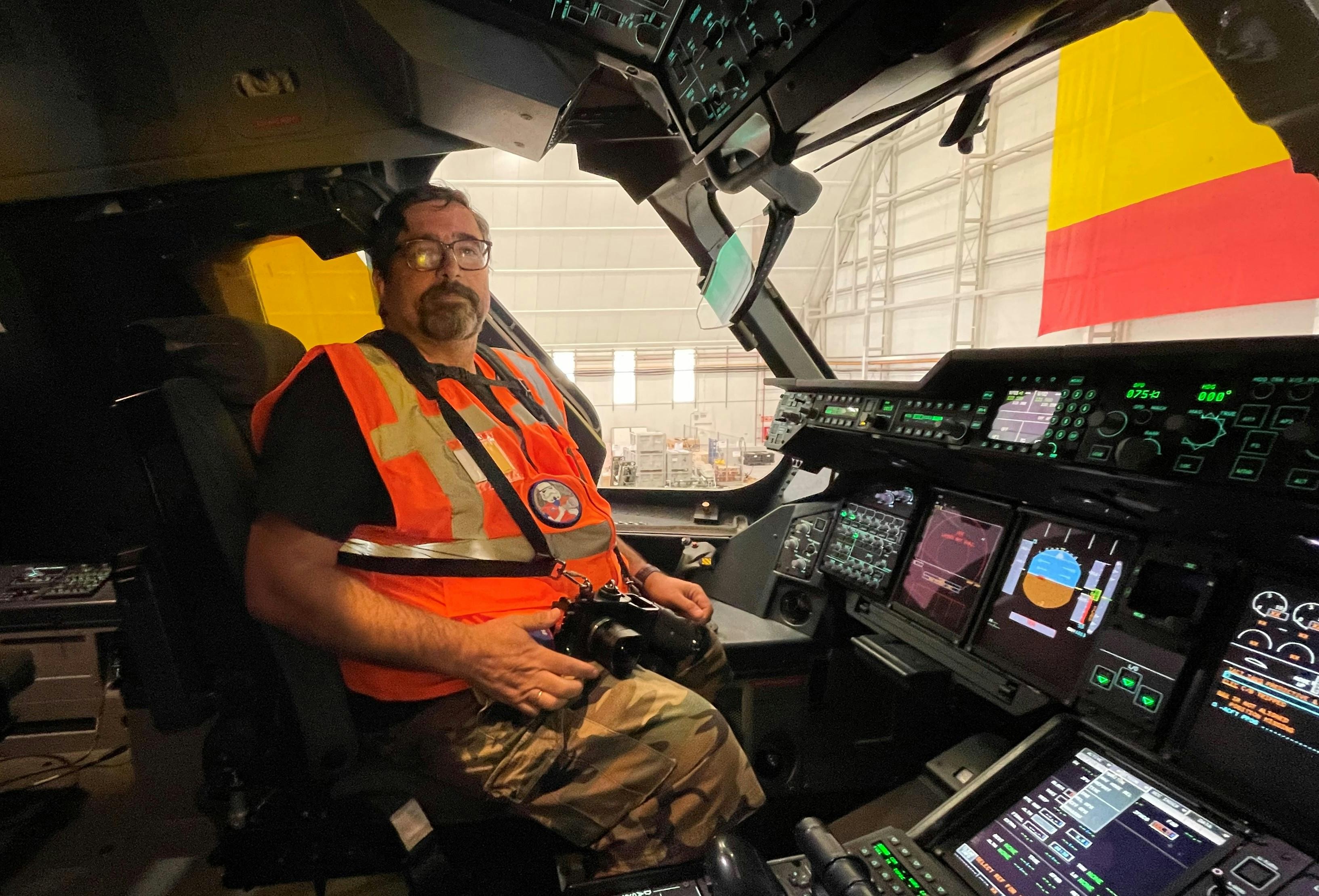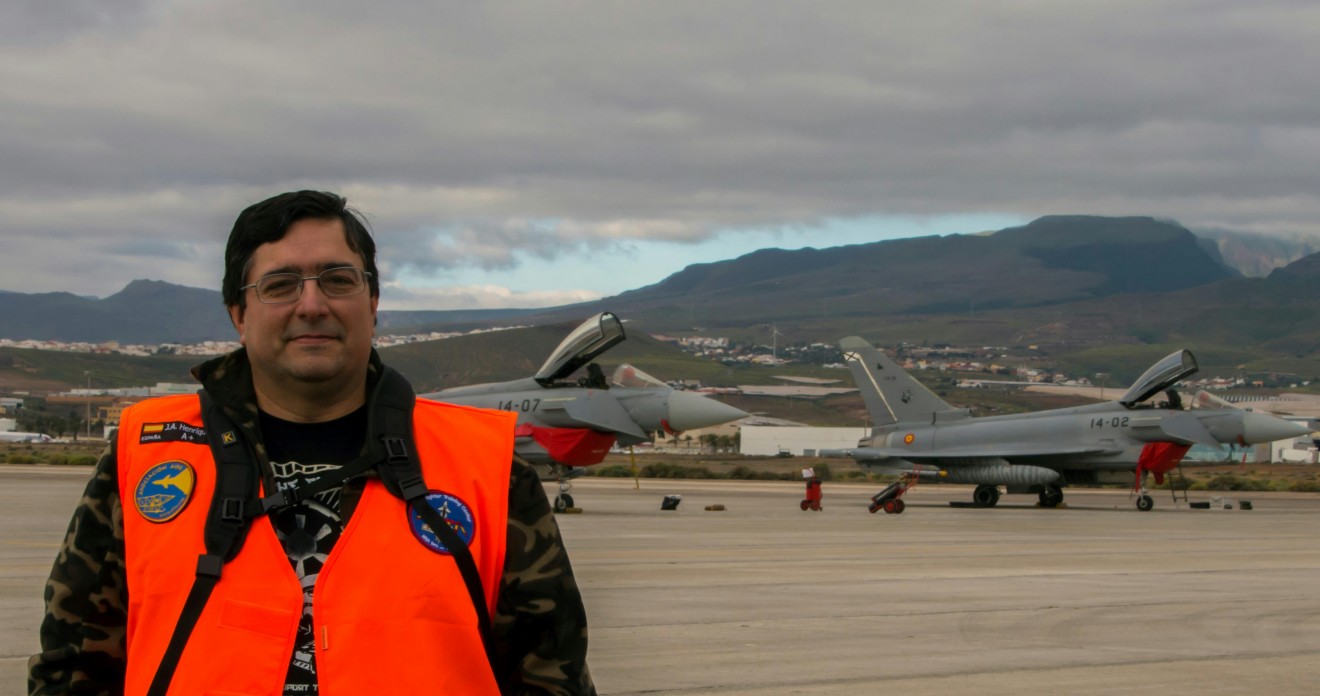What is your career background and when did your fascination with the aviation world begin?
I have been an aviation freak since I was very young probably from when I was about six years old. My mother has told me I was always wanted a model aircraft as a toy! Later, I realised I was never going to be a pilot, so I chased the dream of becoming an aeronautical engineer.
After gaining a degree in aerospace engineering in Madrid I joined CASA (before Airbus) as an software engineer in 1999. CASA was already working on the Eurofighter programme and from the beginning I have worked in the simulation area.
I was a lucky man because as soon as I finished university I started work on real aircraft!
In fact, my first task was working on the calibration of the throttle box in the simulator.
I was working in Getafe for around five to six years on the Eurofighter simulator. In those days, at the beginning of the programme, it was called ASTA (Aircrew Synthetic Training Aids). After that I was also working on the CN235 simulator. The CN235 is a medium-range twin-engine transport aircraft that was jointly developed by CASA. Later, I worked in the specification phase of the full flight simulator for the A400M.
I was then involved with the overall coordination of the entry to service of the ASTA simulator in Spain alongside the installation team, and then starting up the operation of the simulator.
What are the key roles you have played and what have been the high points?
I am now responsible for the Eurofighter simulator training programmes here in Madrid, working with ASTA, now the Pilot Synthetic Training System (PSTS) which hopefully, in the future, will be the national simulator for the Eurofighter. ASTA was a four-nations contract with the four core nations working together and it was decided to evolve it into a more dedicated development stream, PSTS.
When we delivered the first simulator to all of the customers it was really a cornerstone in the whole process. When the customer started to train on the simulator it was a time to celebrate. At one point the simulator was just an idea on paper. Now you can sit on the simulator and fly through the scenario.

Have there been any people along the way who have inspired or encouraged you?
There have been two people during my whole career that I can say I use as a reference. When I started with Airbus there was an experienced guy called Joaquin Vigil. He guided me through the culture of IP Pragmatics.
He helped me adjust to working in the real world of engineering. He supported me and helped me focus during that big step in my career with a really pragmatic approach. Joaquin was also the person who recommended I join the joint simulator team which allowed me to gain valuable experience in the international environment meeting people from Italy, the UK and Germany.
The second person was Pablo Lario who also helped me in the joint team to really understand how people work together in an international environment. At the time it was a big stepping stone for me. Pablo opened my mind to taking a broad view, not just focusing on the simulator, but also looking at the company strategies and the overall future approach to working on the Eurofighter and how we related to customers.
What attracted you to your current role?
I have always been fascinated by aircraft and I am proud to work for Airbus and be involved with the Eurofighter. In my programme role I really enjoy the customer relationship, understanding their requirements, and trying to get the product on the field for them. That customer focus is key the attraction of the role.
From day one of the contract negotiations you are working with them for their future plan. You are very close to the reality of the programme.
Central to the role is the simulator itself. I consider myself to be lucky to be involved in the simulator because I get the opportunity to learn every aspect of the aircraft from the landing gear, to the Meteor launch sequence. I am really lucky.
I enjoy hearing from the pilots. They use a different language when they are talking and explaining their observations, so you need to be able to listen and understand the point of view they are coming from.
What are the specific skills, knowledge or expertise you require to be a success?
A key skill in this complex international environment is being a good listener. You need to be open to understanding different points of view. I enjoy hearing from the pilots. They use a different language when they are talking and explaining their observations, so you need to be able to listen and understand the point of view they are coming from.
They are trained to take quick decisions even when operating in a difficult environment. So, you need to listen to them and compare their views with our thoughts as an engineer. Being able to listen and to understand both worlds is a vital skill.
The second one is behaving with integrity. People need to have full confidence in what you are saying. If one day you decide to go in one direction and then the next week in a different direction, it would send out a damaging message. Your thoughts have to be constant. Then your customers will have full confidence in what you are saying.
Explain what your day-to-day demands and challenges are?
My emails contain my daily challenges. They lead to all kinds of actions from calling engineers, speaking with the programme project managers from other companies, and contacting customers for a whole host of reasons.
Of course, you also need to be looking beyond today. I plan what my engineers need to be doing over the next few days and weeks. In addition, I look at the business’s strategies. For example, I might be preparing information for the Spanish customer and how to consider the potential future evolution of the simulator.
How does it feel to be working as part of the Eurofighter programme?
I am really proud. I feel I am contributing to the making of aviation history. When Eurofighter made its first flight in Madrid I was on the other side of the airfield fence. I watched it take off and thought ‘One day I want to be part of that!’ Well now I am.
When I signed the first paper which had the name Eurofighter across the top I felt totally amazed. I’m a basketball fan and so when I signed that first document it was like playing for a top team and you now felt like you were in the match report. I was playing in the big game. It felt so good.
Why is the work you are involved in important and what impact do you feel it has on the Eurofighter project?
For me, the customer’s opinion fuels me. When we provide them with something they think is special that encourages me to keep pushing. For example, last December we were celebrating the 25,000 hours of training operation in our small facility. The Spanish Air Force is relatively small, so 25,000 hours is an unbelievable amount of training hours. For me it was a really encouraging and motivating milestone.
You work in a very intense environment so how do you wind down and relax. Does what you do outside of your job help with your role?
People will be amazed at what I do in my spare time because whenever I go on holiday or travel I always take photographs of aircraft! I was in Rome in July, and I was there the whole day taking pictures of the Eurofighter belonging to our Italian colleagues.
At home I have a 3D printer and guess what I make? Yes, model aircraft. Just for fun but to understand the technology of the 3D printer. So, nothing has changed really from when I was a six-year-old boy!
Also, I follow basketball. I was born on Gran Canaria and their basketball team is my favourite. I am proud they are one of the best teams in the Spanish league.

